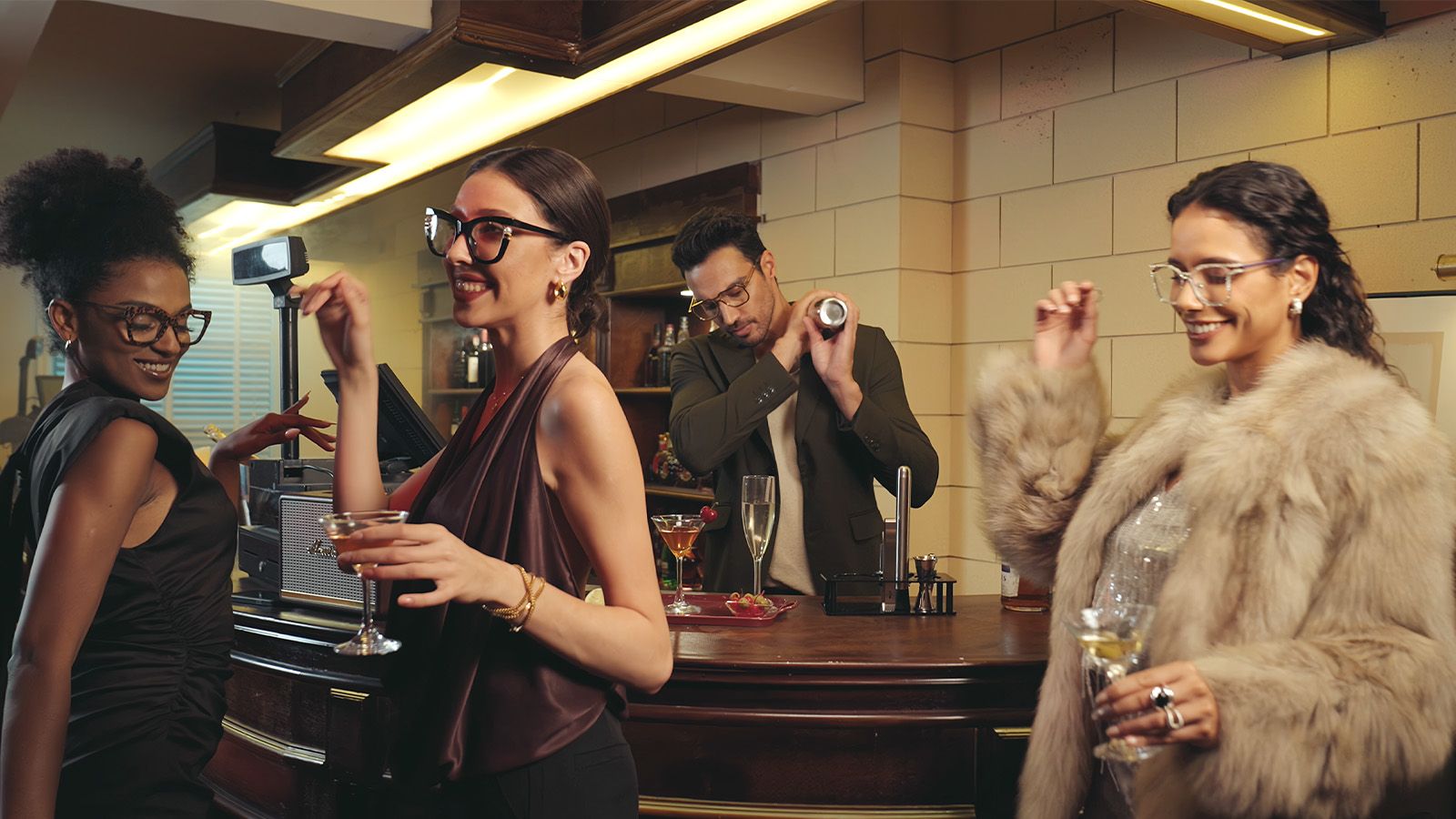All Day Staring at Screens? Here's How to Keep Your Eyes Safe
These days, screens are everywhere. From our computers to our cellphones, tablets, and even TVs, they are all around us. Technology makes life easier, but it comes with some surprising downsides. The blue light that these devices emit is one of the main problems. Although it's a feature of contemporary technology, what exactly are we giving up for that ease of use?

Understanding Blue Light
Blue light is a high-energy, short-wave length light type that is emitted by digital screens, including those seen on computers, telephones, and LED lights. Strangely enough, however, blue light also occurs naturally in sunlight. By informing our body when it's time to be awake and when it's time to go to sleep, blue light—which is primarily present in the sun—helps regulate our sleep-wake cycle.

The problem is that spending hours indoors staring at electronics significantly increases the quantity of blue light we are exposed to. Too much screen time, especially at night, can mess with your sleep and strain your eyes.
The Effects of Excessive Screen Time
Whether it's for work, school, or simply to relax with a TV or video game, we're all guilty of spending hours staring at a screen or scrolling through our phones. But what’s really happening to our eyes and body during all that screen time?
Digital Eye Strain:
If you’ve ever spent long hours in front of a computer, you’ve probably felt it—discomfort, dryness, and blurry vision. This is digital eye strain, and it’s a real issue for anyone who spends a lot of time on screens. It gets harder to focus, and your eyes just feel tired.
Sleep Disruptions:
One of the most surprising impacts of excessive blue light exposure is on sleep. The blue light from screens can suppress the production of melatonin, the hormone that helps you fall asleep. This makes it harder to wind down at night, leaving you feeling groggy the next morning.

Possible Long-Term Damage:
Research suggests that long-term exposure to blue light could contribute to retinal damage over time. While the jury is still out on just how much of a risk this poses, it’s always better to be cautious and protect your eyes sooner rather than later.

Choosing the Right Pair of Blue Light Blocking Glasses
If you spend a lot of time in front of screens, blue light-blocking glasses can be a real game changer. But with so many options out there, it can be tough to know which pair is best for you. Here are a few things to consider when making your choice:
Tinted vs. Clear Lenses:
If you already wear prescription glasses, it might make sense to add a blue light filter to your existing lenses. If you don’t need vision correction, there are plenty of non-prescription blue light-blocking glasses available. The tinted lenses may come in different tints—some with a slight yellow or amber tint and others that are clear, so it’s a matter of personal preference.
Prescription vs. Over-the-Counter:
If you already wear prescription glasses, blue light-filtering lenses can be added to your prescription. On the other hand, if you don’t need prescription lenses, there are plenty of over-the-counter options to choose from that fit comfortably without needing a prescription.
Additional Lens Coatings:
Many blue light blocking glasses come with extra features that can make them even more beneficial. For example, scratch-resistant coatings can help ensure that your lenses stay clear and durable, while UV protection can be helpful when you're outdoors. Anti-glare coatings are also a common feature that can reduce reflections from screens and help make your view a little clearer.
Is It Worth Investing in Blue Light Blocking Glasses?
With all the hype surrounding blue light-blocking glasses, it’s natural to wonder—are they really worth it? Many people say blue light blocking glasses make a real difference — fewer headaches, less eye strain, and better sleep. So who benefits the most from blue light-blocking glasses?
Let’s break it down:
● Office Workers and Students:
If you’re working long hours on a computer or studying for extended periods of time, blue light-blocking glasses can help reduce eye fatigue and discomfort. They help ease the eye fatigue that comes with hours of screen time.

● Gamers:
Blue light blocking glasses are also popular among gamers. If you’re spending hours on end in front of your screen, whether it’s gaming or binge-watching, these glasses may help reduce the digital eye strain and allow you to play or watch for longer without feeling discomfort.
● Anyone Struggling with Sleep:
Tossing and turning at night? Blue light blocking glasses could help you wind down. By blocking out the blue light from screens, you can prevent it from interfering with melatonin production, making it easier to wind down before bed and enjoy a more restful night of sleep.
For best results, wear your blue light blocking glasses, especially at night when screen glare is the worst. This can make a significant difference in reducing eye strain and improving sleep quality.
Taking Care of Your Eyes in a Screen-Heavy World
Let’s be honest: screens aren’t going anywhere. As our use of devices continues to increase, it’s becoming more and more important to consider how we’re taking care of our eyes. After all, your eyes are one of your most precious assets, and you don’t want to take them for granted.
Blue light-blocking glasses are an easy and effective way to reduce the stress on your eyes, improve your sleep, and help protect your vision in the long run. Whether you’re glued to your phone for gaming or staying connected with loved ones, wearing these glasses can make all the difference in keeping your eyes fresh, healthy, and free from strain.
Your eyes do a lot for you — it’s time to return the favor. Grab your blue light-blocking glasses today.




















